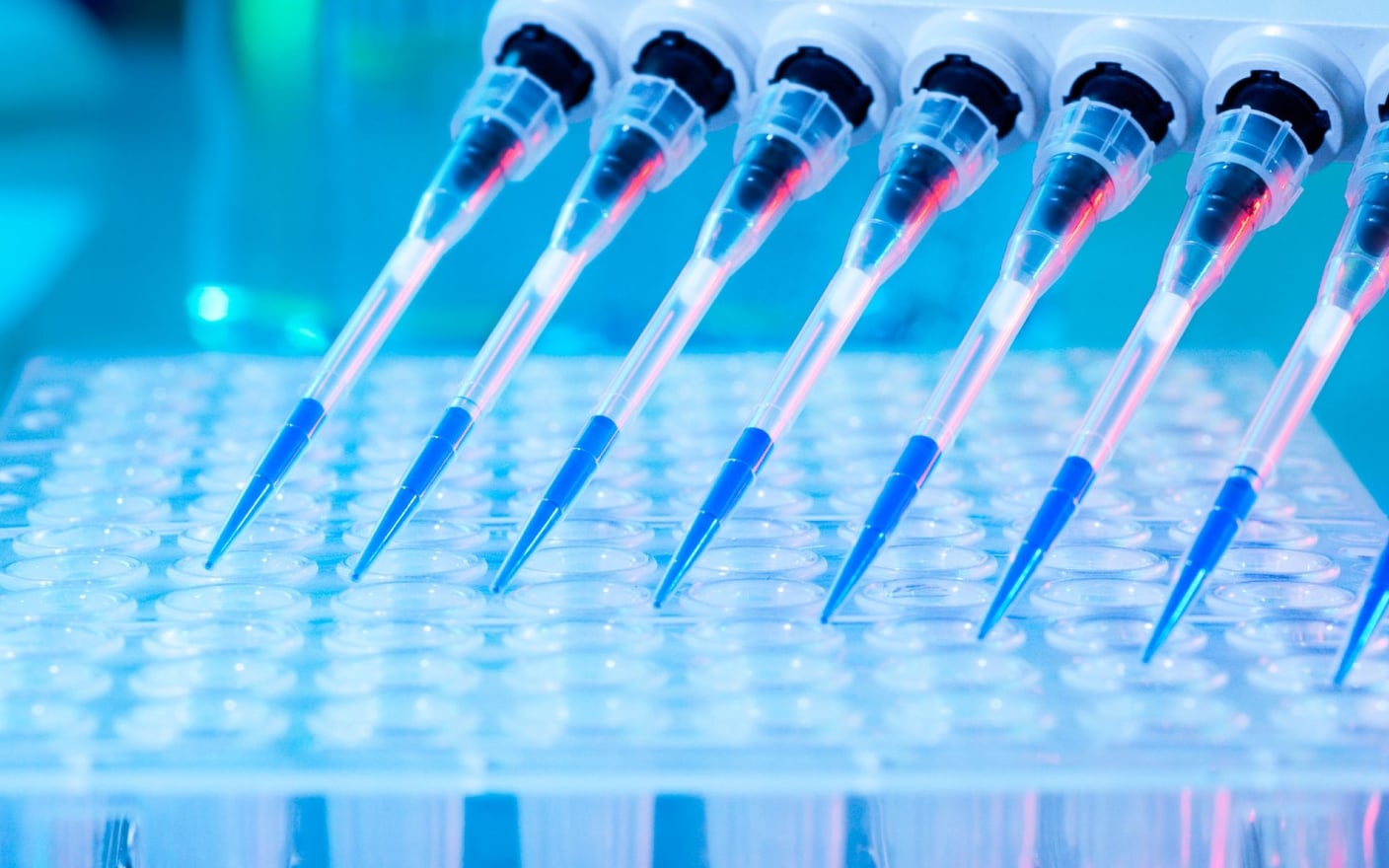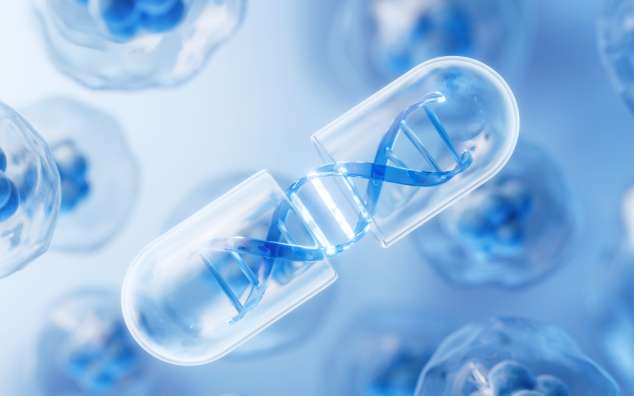Understanding the Absorption, Distribution, Metabolism and Excretion (ADME) properties of a compound is critical to drug discovery and development. In this short guide, we look at how in vitro ADME testing works and why it is important.
To understand in vitro ADME testing, we may first look at where it stands in the overall drug development process. In vitro ADME testing is part of a larger discipline in drug discovery: Drug Metabolism and Pharmacokinetics (DMPK).
Researchers conduct in vitro ADME studies early in the process to understand drug properties and to obtain decision-making information for drug candidates to get further investigation. These tests – and the data they deliver – help inform developers not only throughout the discovery stage but also as they prepare Investigational New Drug Applications (IND) before clinical trials or New Drug Applications (NDA) for market launch.
What Is In Vitro ADME Testing?
In vitro comes from the Latin term “in glass”. It refers to studies that are performed outside of a living organism in a controlled environment, such as a test tube or petri dish. In vitro studies are often contrasted with in vivo (“within the living”) studies, which are done in a whole living organism.
The in vitro testing is ideal for testing a potential drug compound with well-controlled testing conditions at an early stage. In vitro testing requires less resources and tends to be much quicker than in vivo models. In vitro testing helps drug developers understand if the drug candidate is suitable to move forward with further investigations.
What Does In Vitro ADME Testing Study?
In vitro ADME studies absorption (A), distribution (D), metabolism (M), and excretion (E) properties of the drug candidates in a panel of assays outside of a living organism. The deions of each keyword are as follows.
Absorption: Describes the compound’s ability to pass through physiological barriers such as the intestines, skin, etc.
Distribution: Describes how the compound is distributed throughout the body or tissue once it has been taken into the body.
Metabolism: Describes how the body breaks down the compound in organs such as liver, kidney, skin or the gut.
Excretion: Describes how the body removes the compound.
The in vitro testing of ADME at well-controlled conditions provides insights into the DMPK properties of a drug candidate. Obtaining this information as early as possible in the discovery and development has many advantages, including:
Guiding chemical structure optimization.
Facilitating drug-like candidate selection.
Predicting in vivo pharmacokinetics properties and drug-drug interaction potential in humans.
Understanding the ADME properties of new drugs is a key component in drug discovery and development.
In Vitro ADME Testing: Small Molecules vs. Biologics
In general, there are two types of drug candidates a drug developer is investigating: small molecules and biologics.
Small molecule drugs are typically synthetic, low molecular weight (<1,000 Daltons) compounds that are capable of modulating biochemical processes to diagnose, treat, or prevent diseases. Think aspirin and penicillin. The traditional small molecule drugs can fall into common criteria, such as the Lipinski rule-of-five criteria. But the palette for generally accepted in vitro models for biologics is still relatively scarce, due to their unique properties and mechanisms of action.
According to the US FDA, biologics include “a wide range of products such as vaccines, blood and blood components, allergenics, somatic cells, gene therapy, tissues, and recombinant therapeutic proteins”. For example, insulin and COVID-19 vaccine. Biologics are very target-specific to treat populations.
Biologics have more complex structures and are thus more difficult to define and characterize. Because of this level of complexity, investigating the ADME properties of a biologic is very different from small molecules and requires a carefully designed and a closely monitored process.
Now that we know the difference between in vitro ADME testing for small molecules and biologics, here are some specific tests you may want to consider conducting (Table 1).
ATTRIBUTION | CLASSIFICATION | ASSAY TYPE |
Absorption | Permeability | PAMPA, Caco-2, MDCKII, MDR1-MDCKII, MDR1-MDCKI, MDCK I |
Absorption | Transporter | Efflux transporters: BCRP, P-gp, BSEP, MRP2, MATE1, and MATE2-K |
Distribution | Red blood cell | B/P Ratio |
Distribution | Protein binding | Equilibrium dialysis, ultrafiltration, and ultracentrifugation |
Metabolism | Matrix | Tissue, Plasma, Simulated gastric fluid/Simulated intestinal fluid, Buffer |
Metabolism | Cells, sub-cellular | Microsomes, S9, hepatocytes, lysosomes, mitochondria, recombinant enzymes, etc. |
Metabolism-related drug-drug interactions | CYP and UGT | Reversible inhibition, Ki, time-dependent inhibition, kinact/KI, metabolic reaction phenotyping, CYP enzyme induction (enzyme activity and gene-level) |
Table 1. In vitro ADME assays for drug discovery studies
Overcoming In Vitro ADME Testing Challenges
The importance of in vitro ADME testing cannot be understated. After all, early and thorough ADME testing has significant downstream effects on the potential success of a drug.
Getting these tests and the immense data they produce in order is no small task. In vitro ADME testing is a fairly repeatable process for small molecules but still complex. And, as indicated by the short list of potential tests outlined above in Table 1, it is extensive. Biologics could be an entirely different story.
That is why one of the most pressing challenges of in vitro ADME studies as a whole is to identify the appropriate assays that can provide clinically relevant outcomes. For example, in vitro systems such as liver and other tissue fractions, and cell cultures with or without specific transfections for target transporters, are becoming more important.
On top of these challenges, drug developers face tight timelines, increasing costs and very slim odds. In fact, only about 12 percent of new drugs entering clinical trials ever get FDA approval. As we have seen through this overview of in vitro ADME testing, a very important yet single aspect of drug development, the process is complex.
So, what can drug developers do to increase their success rate? How can they not only identify the right assays for their compound but also get them done and progress towards clinical trials – faster and more cost effectively?
Work with an In Vitro ADME Laboratory Testing Partner
Given the complexity with the test you might have to conduct, the mass amount of data you will need to collect, and unforeseen challenges you may have to overcome, working with a trusted partner with expertise on your ADME testing is the best way forward for your new drug development. With the support of a comprehensive testing platform, you can focus your resources on optimizing your compound and efficiently and confidently getting to clinical trials.
Committed to accelerating drug discovery and development, we offer a full range of discovery screening, preclinical development, clinical drug metabolism, and pharmacokinetic (DMPK) platforms and services. With research facilities in the United States (New Jersey) and China (Shanghai, Suzhou, Nanjing, and Nantong), 1,000+ scientists, and over fifteen years of experience in Investigational New Drug (IND) application, our DMPK team at WuXi AppTec are serving 1,500+ global clients, and have successfully supported 1,200+ IND applications.
Talk to a WuXi AppTec expert today to get the support you need to achieve your drug development goals.
Stay Connected
Keep up with the latest news and insights.












